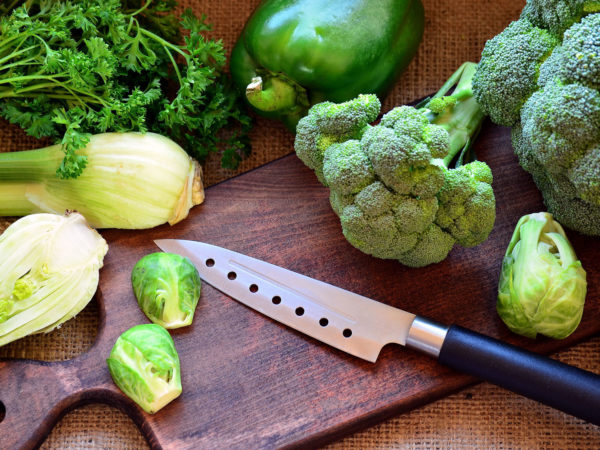Battling Broccoli?
I like broccoli, but, to be frank, it gives me gas, as do related foods such as cauliflower and Brussels sprouts. I know that I’m missing out on important nutrients by avoiding these foods. Is there a way I can eat these vegetables without getting gas?
Andrew Weil, M.D. | May 26, 2006

Broccoli and other cruciferous vegetables including cauliflower, Brussels sprouts, cabbage, turnip greens and kale are rich in antioxidants, which help protect against both cancer and heart disease. Population studies have shown that people who eat a lot of broccoli and other cruciferous vegetables have lower rates of cancer than those who don’t. We don’t know what constituents of broccoli and other crucifers are responsible for these protective effects. It may be a compound that occurs naturally in broccoli and cabbage, indole-3 carbinol (I-3-C), or the carotenoid pigments these vegetables contain. Other possibilities include vitamin C or sulforaphane, a compound thought to increase production of an anti-tumor enzyme that is most concentrated in three-day-old broccoli sprouts. Most likely, the cancer-protective effects of broccoli and its relatives result from a synergistic interaction of these and other components of the vegetables.
Despite their healthy profile, some high-fiber cruciferous vegetables have bad reputations as gas producers due to their content of an indigestible sugar called raffinose (Larger amounts of raffinose are found in beans, which are notorious for inducing flatulence). Methane-producing bacteria in the colon feed on raffinose and release gas in the process. There’s nothing you can do to broccoli and other crucifers to cut down on the gas they induce. Extra cooking just makes them unpalatable and destroys vitamin content (incidentally, cooking broccoli in aluminum or copper pots also destroys vitamins and ruins flavor). The extent to which your body produces gas depends on the types of bacteria in your colon that break down foods for digestion – we all are born with unique assortments of gut flora.
Broccoli and the other vegetables you mention are so good for you that it’s worth making an effort to minimize their gas-producing effects so you can enjoy their health benefits. You can try eating yogurt, kefir, or buttermilk regularly, to boost the friendly bacteria in your colon. Taking probiotic supplements, like lactobacillus GG, might be an even better way to do this. Lemon juice with meals can also be helpful. And limiting high-fat foods can reduce bloating and discomfort and help the stomach to empty faster, allowing gases to move more readily into the small intestine. You can also try taking Beano before eating your broccoli. Available at health food stores, it is made from a plant-derived enzyme that breaks down raffinose before it enters the colon, thus reducing gas production.
In addition, you might experiment by eating very small amounts of broccoli every day, gradually increasing your intake to see if you can build up tolerance to it. Finally, fennel seeds can help expel gas from the digestive tract – try chewing and swallowing a half teaspoon at the end of a meal. Indian grocery stores sell sugarcoated fennel seeds as digestive aids.
Andrew Weil, M.D.









